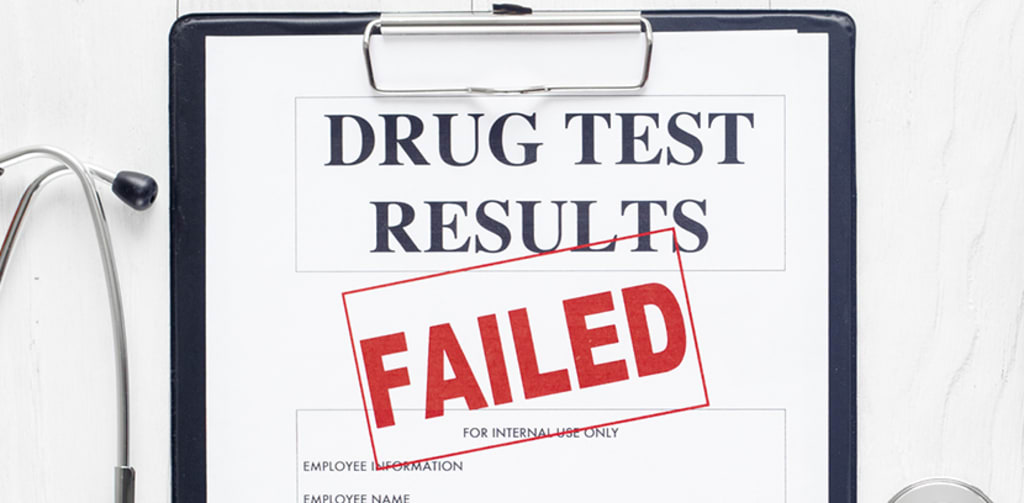What Are the Chances of Failing a Drug Test?
Understanding the Risks: A Closer Look at Drug Test Failures

Drug testing has become a common practice in various contexts, including employment, legal matters, and athletic competitions. For individuals who may have used drugs in the past, the possibility of failing a drug test can be a source of concern and anxiety.
In this article, I will explore the factors that affect drug test results, discuss the chances of failing a drug test, and provide insights on how to improve your chances of passing one.
Introduction
Drug tests are designed to detect the presence of drugs or their metabolites in an individual's body. They are conducted through various methods, such as urine, blood, saliva, or hair sample analysis. The purpose of drug testing can vary depending on the context, ranging from pre-employment screenings to ensuring compliance with legal requirements or maintaining fair competition in sports.
Understanding Drug Tests
Types of Drug Tests
There are different types of drug tests available, each with its own advantages and limitations. The most common types include urine tests, blood tests, saliva tests, and hair follicle tests. Urine tests are often preferred for their non-invasiveness and cost-effectiveness, while blood tests provide a more accurate and immediate analysis. Saliva tests are convenient for on-the-spot screenings, and hair follicle tests can detect drug use over a longer period.
How Drug Tests Work
Drug tests operate by detecting the presence of specific drugs or their metabolites in a sample provided by the individual being tested. The tests are designed to be highly sensitive, aiming to identify even trace amounts of drugs. Depending on the test type, different detection windows exist, which refers to the timeframe during which drugs can be detected after their use.
Factors Affecting Drug Test Results
Several factors can influence drug test results and impact the chances of passing or failing. It's important to be aware of these factors to understand the potential outcomes accurately.
Drug Detection Windows
Different drugs have varying detection windows, which can range from a few hours to several weeks. Substances like marijuana can be detected for a longer duration in comparison to drugs like cocaine or opioids. Understanding the detection windows can provide insight into the likelihood of a positive test result.
Drug Metabolism and Elimination
Each person's metabolism is unique, affecting how quickly drugs are broken down and eliminated from the body. Factors such as age, weight, overall health, and liver function can influence drug metabolism. Consequently, individuals with faster metabolism may have a shorter drug detection window, potentially reducing their chances of failing a drug test.
Sensitivity of the Test
The sensitivity of the drug test plays a crucial role in determining its accuracy. Some tests have higher sensitivity levels, allowing them to detect lower concentrations of drugs. Tests with high sensitivity are more likely to yield positive results, increasing the chances of failing a drug test.
Dosage and Frequency of Drug Use
The amount of drug consumed and the frequency of use can significantly impact drug test results. Higher dosages and frequent drug use are more likely to produce positive test results, as the concentration of drugs in the body is increased.
False Positive and False Negative Results
While drug tests aim to provide accurate results, there is always a possibility of false positives or false negatives, leading to inaccurate outcomes.
Common Causes of False Positives
False positives occur when a drug test incorrectly indicates the presence of drugs when none were used. Certain factors can contribute to false positives, including the consumption of certain foods, medications, or supplements that may contain substances similar to drugs being tested. Additionally, some medical conditions or lab errors can also lead to false positives.
Common Causes of False Negatives
False negatives, on the other hand, occur when a drug test fails to detect the presence of drugs that were used. Factors such as diluted urine, certain drug formulations, or taking substances that interfere with the test's accuracy can contribute to false negatives.
Legal Implications and Consequences
Failing a drug test can have serious legal and personal consequences, depending on the context in which the test was conducted.
Employment Drug Testing
Many employers require drug testing as part of their hiring process or to maintain a drug-free workplace. Failing a pre-employment drug test can result in the withdrawal of a job offer or termination from an existing position, as it may be perceived as a violation of company policies.
Probation and Parole Drug Testing
Individuals on probation or parole may be subject to routine drug testing as part of their supervision. Failing a drug test in these situations can lead to legal repercussions, including a potential violation of the terms of probation or parole, resulting in penalties or even imprisonment.
Sports and Athletic Drug Testing
Athletes participating in sports competitions are often subject to drug testing to ensure fair play and maintain the integrity of the sport. Failing a drug test in sports can lead to disqualification, loss of awards or titles, and damage to an athlete's reputation.
Ways to Improve Your Chances of Passing a Drug Test
If you are concerned about failing a drug test, there are several steps you can take to improve your chances of passing.
Cease Drug Use
The most effective way to ensure you pass a drug test is to abstain from drug use altogether. Depending on the drug, it can take varying amounts of time for the body to eliminate traces of the substance. Ceasing drug use well in advance of a test increases the likelihood of a negative result.
Stay Hydrated and Exercise
Staying hydrated and engaging in regular exercise can help expedite the elimination of drugs from your system. Drinking plenty of water and sweating through physical activity can assist in flushing out toxins, potentially reducing the detection window.
Use Detox Products with Caution
There are various detox products available in the market that claim to help individuals pass drug tests. While some of these products may have temporary effects, it's essential to approach them with caution and carefully consider their reliability and potential risks.
Understand Your Rights and Options
It is crucial to understand your rights and options if you are facing a drug test. Familiarize yourself with the specific laws and regulations surrounding drug testing in your context, as well as any potential legal remedies or alternative testing methods that may be available.
Conclusion
Drug tests can be a source of concern for individuals who have used drugs in the past. While the chances of failing a drug test depend on various factors, including drug detection windows, metabolism, test sensitivity, and drug usage patterns, there are steps individuals can take to improve their chances of passing. By understanding the factors that influence drug test results and making informed decisions, individuals can navigate drug testing scenarios with greater confidence.






Comments
There are no comments for this story
Be the first to respond and start the conversation.